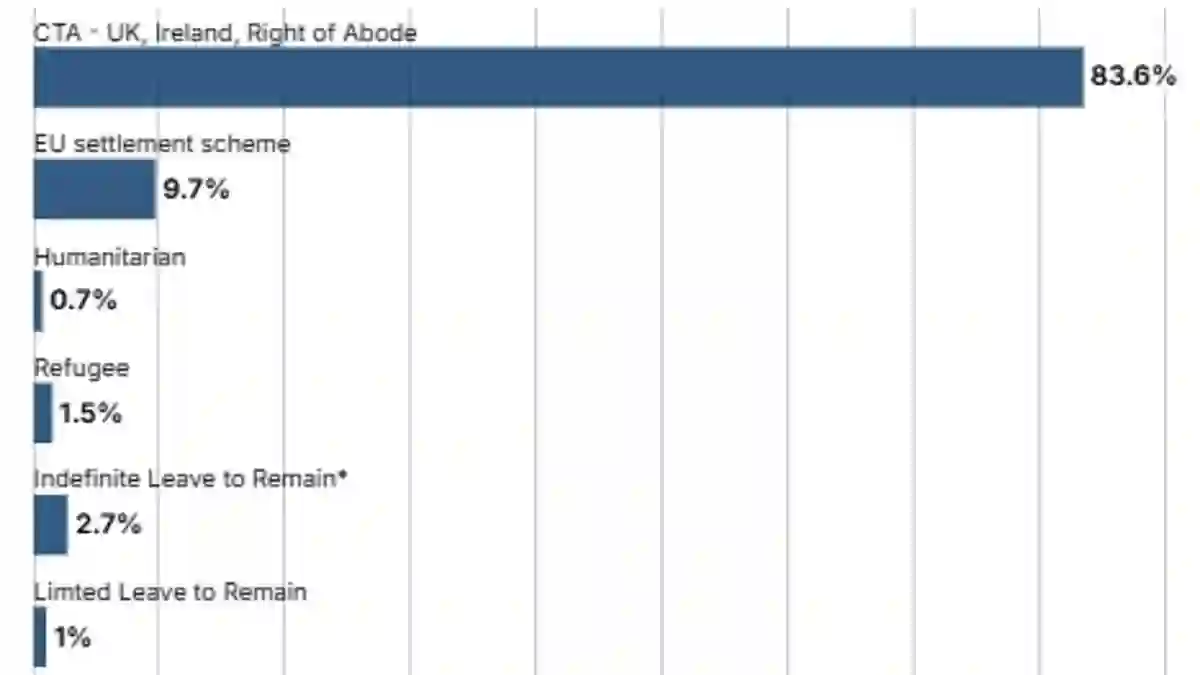The number of migrants receiving Universal Credit in the UK has now crossed the one million mark, sparking worries among politicians and campaigners about the sustainability of the welfare system.
New data released recently reveals a significant jump in foreign nationals relying on the benefit, many of whom are currently unemployed.
New Data Shows Surge in Migrants on Universal Credit
Official statistics show that the total number of migrants claiming Universal Credit rose sharply from around 883,000 in 2022 to approximately 1.26 million by last month.
This includes people from various immigration statuses, with the majority not currently in employment.
The figures come as the government, under pressure from opposition MPs, published for the first time detailed information about claimants’ immigration status.
Breakdown of Immigration Status Among Universal Credit Recipients
Most Universal Credit recipients—about 84%—are British, Irish, or have unrestricted rights to live and work in the UK.
The next biggest group is made up of people with settled status under the EU Settlement Scheme, making up almost 10% of claimants.
Smaller numbers include those with indefinite leave to remain (about 3%), refugees, and individuals who arrived through humanitarian routes like the Ukraine and Afghan resettlement schemes.
Political Reaction: Calls for Restricting Benefits to UK Citizens
The release of these numbers has reignited heated debates over the welfare system.
Shadow Home Secretary Chris Philp described the figures as “staggering,” arguing that Universal Credit should be reserved for UK citizens to protect taxpayer money and fairness.
Tory MP Neil O’Brien echoed the sentiment, pointing out that many claimants are not working and calling the current situation “unsustainable.”
The Welfare System Faces Growing Pressure
Universal Credit is designed to help those with low or no income cover living costs.
The total number of claimants has also climbed, from 6.8 million in mid-2024 to nearly 7.9 million in mid-2025.
Critics warn that the welfare system risks encouraging “worklessness” among both British citizens and migrants alike.
Calls for Policy Reforms and Immigration Controls
Experts and politicians have proposed several reforms, including scrapping indefinite leave to remain and tightening the immigration system to emphasize economic and social contributions before granting settlement.
The government insists it aims to reduce net migration and reform welfare to better support those willing to work.
Challenges Facing the Government and Public Finances
This issue is further complicated by recent political developments, such as Labour’s failure to pass sickness benefit reforms, which would have saved billions.
With rising benefit claims and political tensions, there are growing concerns about the strain on public finances, with suggestions that new taxes may be needed to cover shortfalls.
What This Means for British Taxpayers and Communities
At its heart, the debate centers on fairness, responsibility, and the long-term impact of migration and welfare policies on communities across the UK.
As these figures continue to grow, many are asking how the government can balance supporting vulnerable people while maintaining a sustainable welfare system for all.
